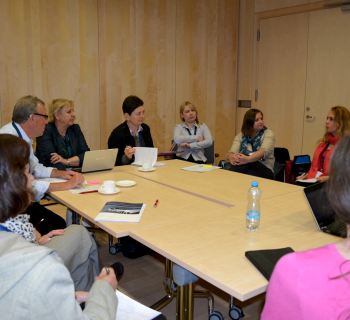
EIFL and our partners trained over 324,100 researchers, librarians and research administrators in open access, open data and open science from 2004 - 2023.
As a result of current data capture methods and data malpractice, approximately 50% of all research data and experiments is considered not reproducible, and the vast majority (likely over 80%) of data never makes it to a trusted and sustainable repository, according to a report on research published by the European Commission in 2016.
Open science is seen as a way of improving the quality of research. It is an approach that makes research processes and data open and transparent at all stages, from planning to dissemination of results, and which encourages collaboration among researchers. Transparency means that problems in methodology and data capture can be identified and solved sooner; openness means that results can be validated more quickly. Early feedback adds to quality of research outcomes.
More and more scientists across the world are introducing open science practices into their work. However, there are diverse approaches to open science in different disciplines, regions and institutions, and there is still a lack of practical guidance and training for researchers.

Want to know more? Contact EIFL Open Access Programme Manager Iryna Kuchma: iryna.kuchma@eifl.net.
We are entering the era of open science … the impact will be good for citizens, good for scientists and good for society.
EIFL and our partners trained over 324,100 researchers, librarians and research administrators in open access, open data and open science from 2004 - 2023.
The FOSTER Portal provides access to a large body of training materials on open science that are openly-licensed and available for reuse.